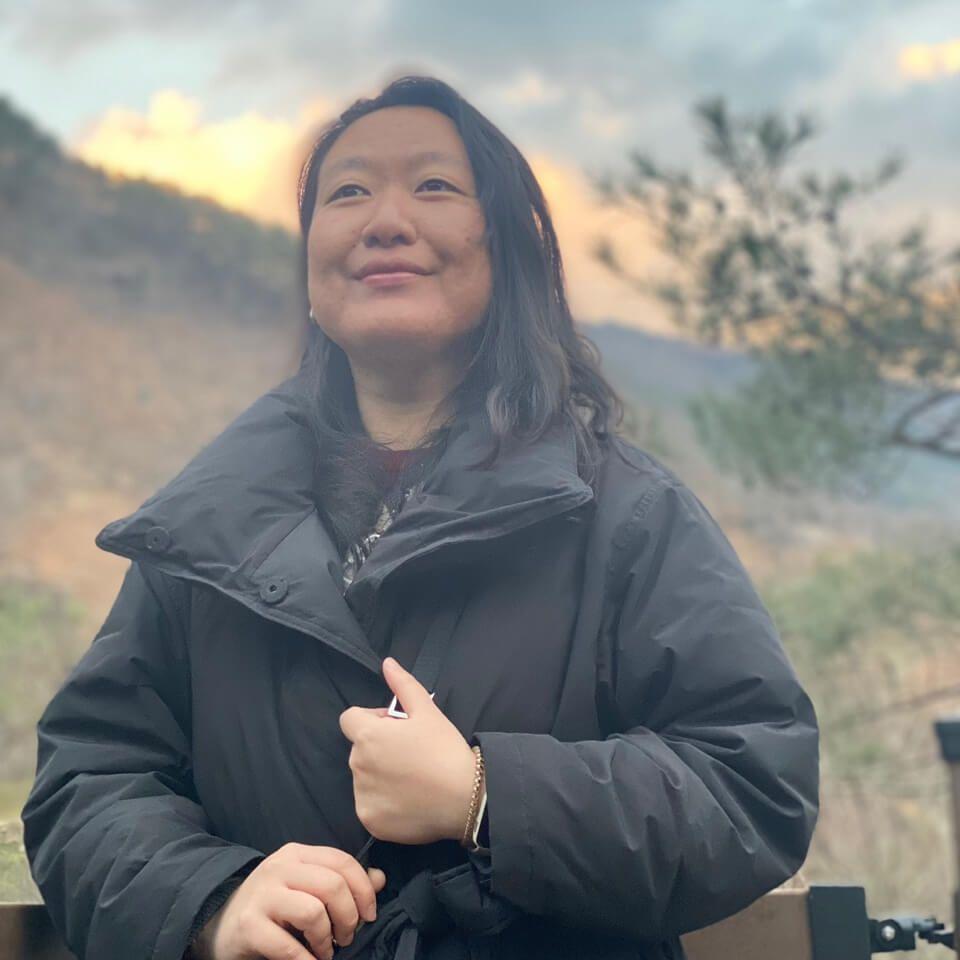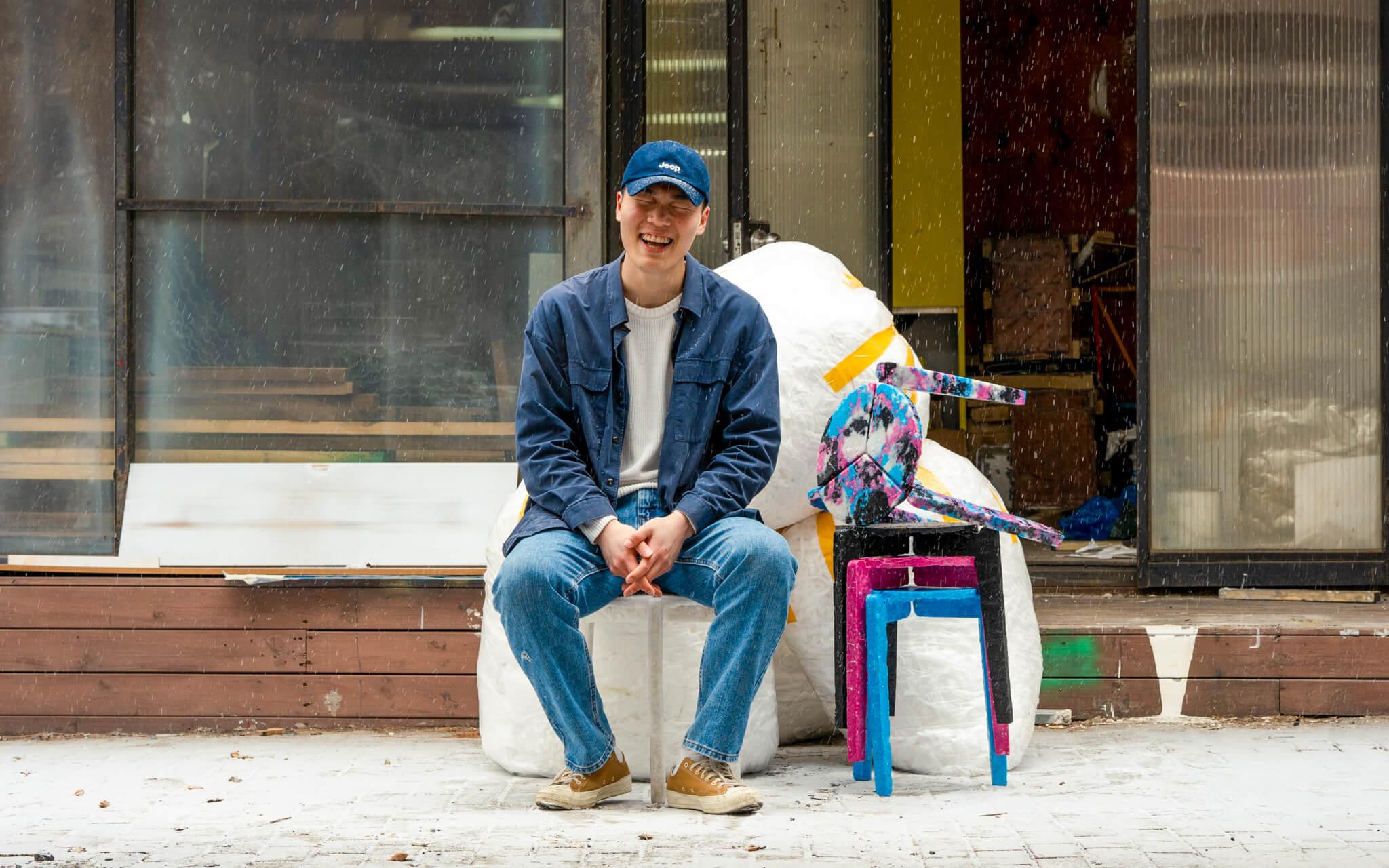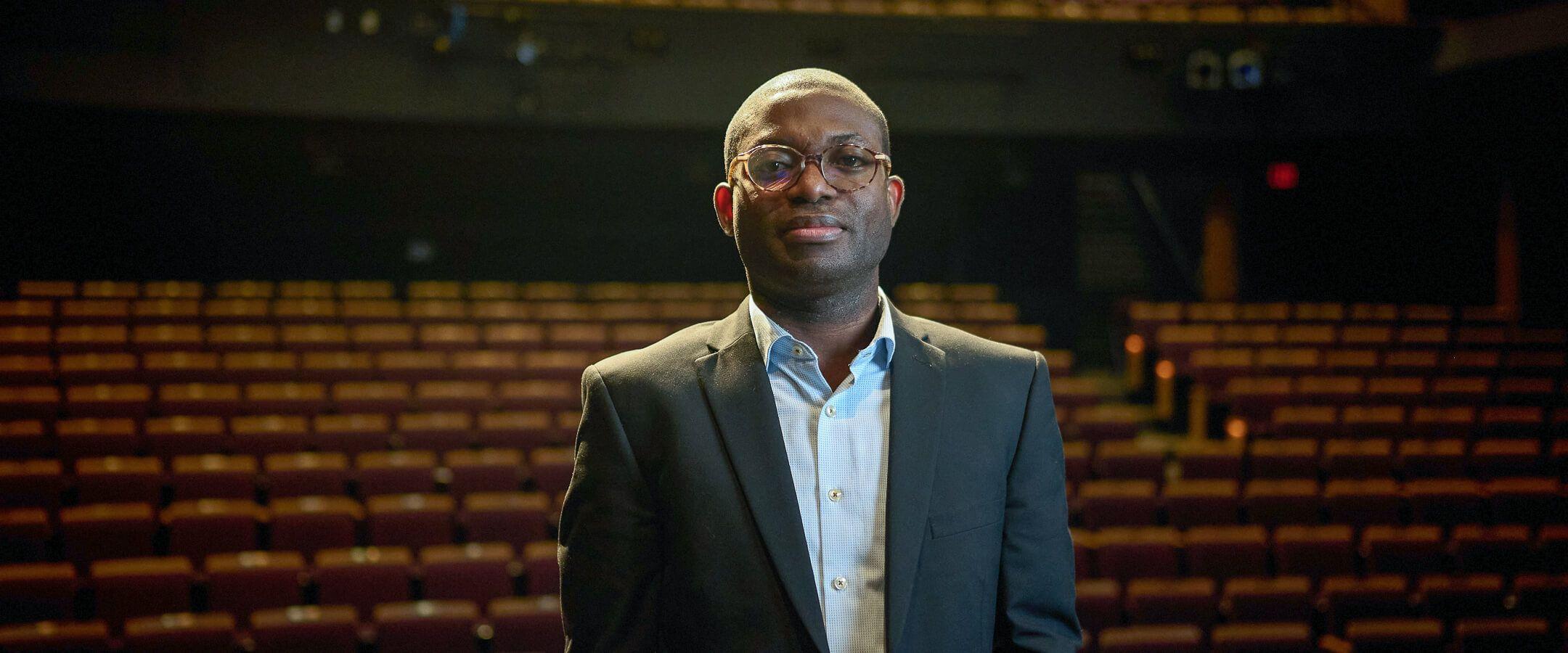‘Enough’ is Just Around the Corner
Sundra Essien is a human rights lawyer turned entrepreneur who owns a degrowth-centric business called Isangs in Copenhagen. With this platform, she hopes to awaken people to a fundamental truth: we cannot extract resources forever.
Sundra Essien has been in many places in her life. She’s been a human rights lawyer in the corporate sphere, a student of sustainable growth practice at a permaculture research farm in Belize, and a student at business school, rubbing shoulders with future business owners and entrepreneurs. Years of observation have led her to believe one thing–the current growth model for all businesses is extremely damaging.
“Isangs is the name of my brother, who passed away. I thought it was a positive way to interact with his name every day and remember him,” Sundra says, explaining the name of her cosmetic business based in Copenhagen with a sense of warmth and ease that seems natural for her.
At Isangs, apothecary-style wooden shelves line the walls, wooden tables showcase handmade products and refilling stations, and glass jars display colourful ingredients.
Through her shop, Sundra presents people with re-envisioned cosmetic products and accessories handmade with organic ingredients. Sundra’s fascination with chemistry drives her to experiment with raw materials. The products’ packaging is sustainable and reusable. Every aspect of Isang’s product is deeply rooted in her unwavering de-growth-centric manifesto.
“It’s an evolving testing centre–a complex organism,” she says, referring to her business model. “Degrowth sounds nice, but can that really work in practice?”
One might wonder, “What do you do if popularity demands more production?” After all, we’ve seen it time and again: small businesses with some recognition and success end up pushing for mass production, especially with access to global shipping.
Sundra’s homemade products set a natural limitation on ‘scaling up.’ In order to stay in sync with her menial growth mentality, Sundra refuses to push natural resources to the limit in order to produce more products: resources from the earth always come at a cost. Isangs also doesn’t support global shipping, just one more they keep their environmental footprint as low as possible.
As an ex-MBA student, Sundra believes that the current business philosophy taught to entrepreneurs only urges them to “pursue more” instead of knowing when to stop and be content. “It’s a cancerous model of business,” she points out.
“The growth obsession also pits businesses in unhealthy competition,” Sundra continues, “This results in fewer businesses monopolising power, which causes less diversity in new ideas and fewer resources, not to mention damaging the environment through overgrowth.”
Sundra’s words ring true as juggernaut companies like Amazon move into neighbourhoods and leave many surrounding businesses obsolete unless they join the corporation.
“Big companies like that also try to fit sustainability models into their growth models–like the infinite green growth model—while the growth itself is the problem,” Sundra pleads. She raises a crucial point: Companies cannot greenwash themselves out of the mess they’ve created - it’s time to eradicate the growth model in its entirety.
“Everything in this world, if it surpasses a certain growth, is toxic.” She is unequivocal in the damage current consumption is causing.
Sundra’s caution of overconsumption stems from her parents and a deep-seated connection to her Nigerian heritage. “Dad had many phrases he liked to say–we’re Nigerians, we love a good phrase,” she says with a mischievous, ear-to-ear grin, making me laugh. “He would say, ‘Food doesn’t start in the supermarket.’” A constant reminder of just how much labour a product requires before passing into the hands of a consumer.
My mom has always been very adamant about how ‘enough’ is an attainable number. And it’s not nearly as big as people think.
Like her husband, Sundra’s African-American mother, who is no stranger to poverty, also encouraged Sundra to maintain a lifestyle that doesn’t take much upkeep. “She’d say, ‘I can go pick up cans to make a living.’ She believed that you have more freedom if you have fewer things.”
“My mom has always been very adamant about how ‘enough’ is an attainable number. And it’s not nearly as big as people think,” Sundra says, touching on a time-honoured truth: Money does not equal happiness.
“The degrowth lifestyle that we promote at Isangs isn’t controversial, but it’s a huge challenge to the status quo, and people sometimes take it personally,” she says, shrugging. In addition to the on-site demonstration of handmade products, Sundra also tries to raise awareness and educate her audience on various socioenvironmental topics ranging from the importance of shopping locally to the detrimental impacts of fast-beauty trends.
With her steadfast and sizable social media presence, Sundra approaches her audience with humorous parodies of influencer tropes. Her messaging is primarily informative and upbeat, urging you to channel consumption through a more conscious part of the brain. “We don’t want our messages to be too heavy-handed.”
Sundra loves to spend her time talking to customers at her shops, often engaging in lengthy, invaluable discourses that leave her with gratitude. “Luckily, we have a lot of kind and like-minded people whom we can interact with,” she says.
“I’ve been wearing the same shirt every day for weeks. No one has ever mentioned it or treated me differently,” she says, delighted by the lightness of such a simple yet defining act.
It’s liberating to see others liberated. And that’s precisely what Sundra’s striving for with Isangs: showing others how free they can be once they realise the ‘enough’ in their lives.
Most Popular
The Climate Tribe delivers stories about Biodiversity and Conservation, Circular Economy, Food and Water , and how they intersect with climate.
Subscribe
Get the latest stories inspiring climate action around the globe straight to your inbox.






